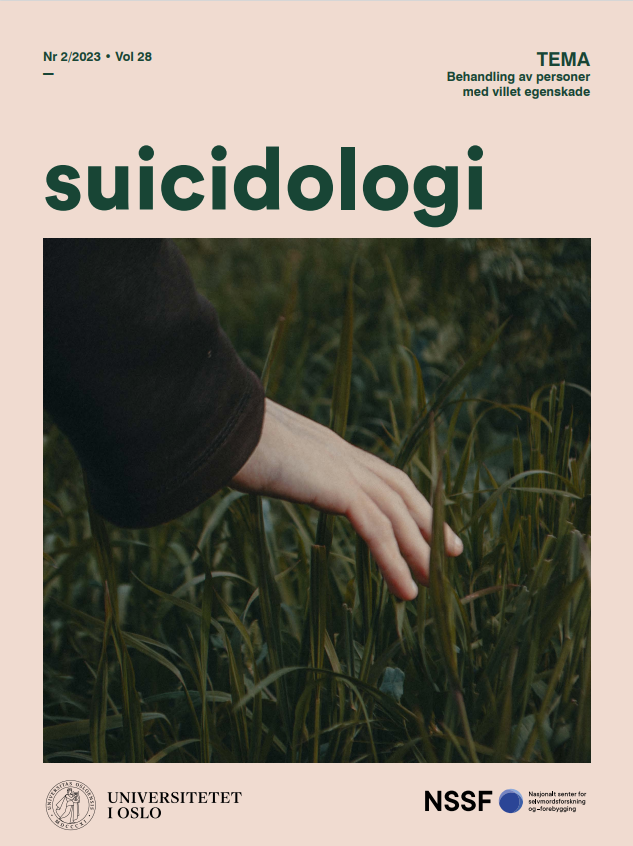En litteraturgjennomgang og vurdering av retningslinjer for behandling av villet egenskade
DOI:
https://doi.org/10.5617/suicidologi.10546Abstract
Clinical guidelines are important to make clinical care more evidence-based, updated and consistent to avoid harmful treatment and improve patients’ safety. In turn, guidelines can improve clinicians’ capacity to conduct assessments and deliver high quality treatment.
Our aim was to critically appraise clinical guidelines for suicide and self-harm risk assessment, management and treatment. We systematically searched databases for such guidelines. Fourteen guidelines were assessed with the AGREE II guideline appraisal instrument. The guidelines
were of highest quality in the areas “scope and purpose”, “stakeholder involvement” and “clarity of presentation”, and lowest within “rigor of development”, “applicability” and “editorial independence”. Three out of 14 guidelines were considered of good quality. Many guidelines rely to a large extent on consensus and a very limited number of high-quality empirical studies. Furthermore, several guidelines provide insufficient details about how they were developed and their evidence base. Thus, more primary research, especially randomized controlled trials of potentially effective interventions and clinical procedures, are needed to inform future guidelines. In Norway, there is a great need for updated guidelines on hospital treatment and clinical follow-up of people who self-harm, as current guidelines are outdated.
Downloads
Published
Issue
Section
License
Authors who publish with this journal agree to the following terms:
- Authors retain copyright in accordance with the Norwegian Copyright Act (link in Norwegian), and grant Suicidologi right of first publication with the work.
- Authors are able to enter into separate, additional contractual arrangements for the non-exclusive distribution of the journal's published version of the work (e.g. post it to an institutional repository), with an acknowledgement of its initial publication in this journal.
- Readers of Suicidologi may only use the journal's content in accordance with the Norwegian Copyright Act.


